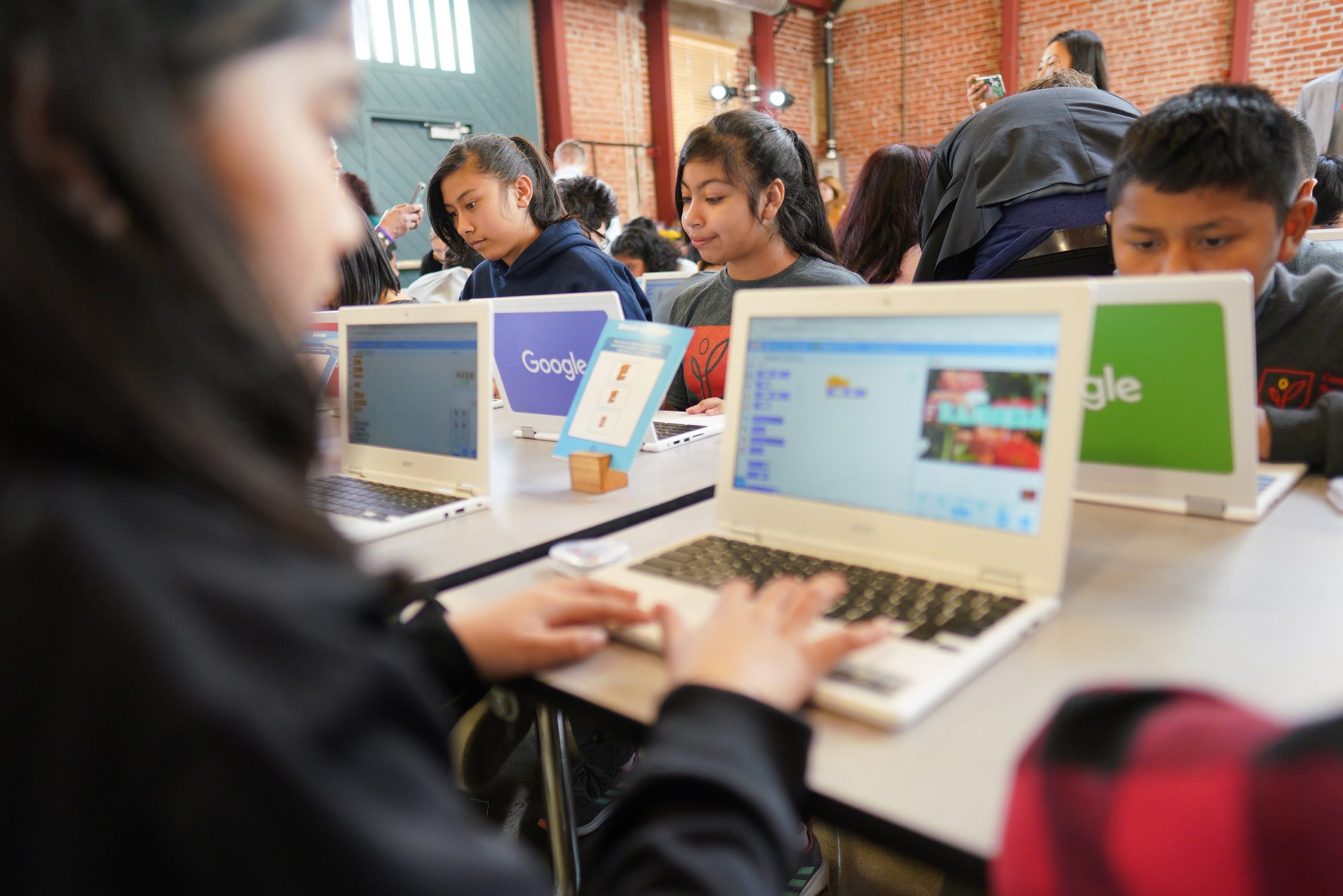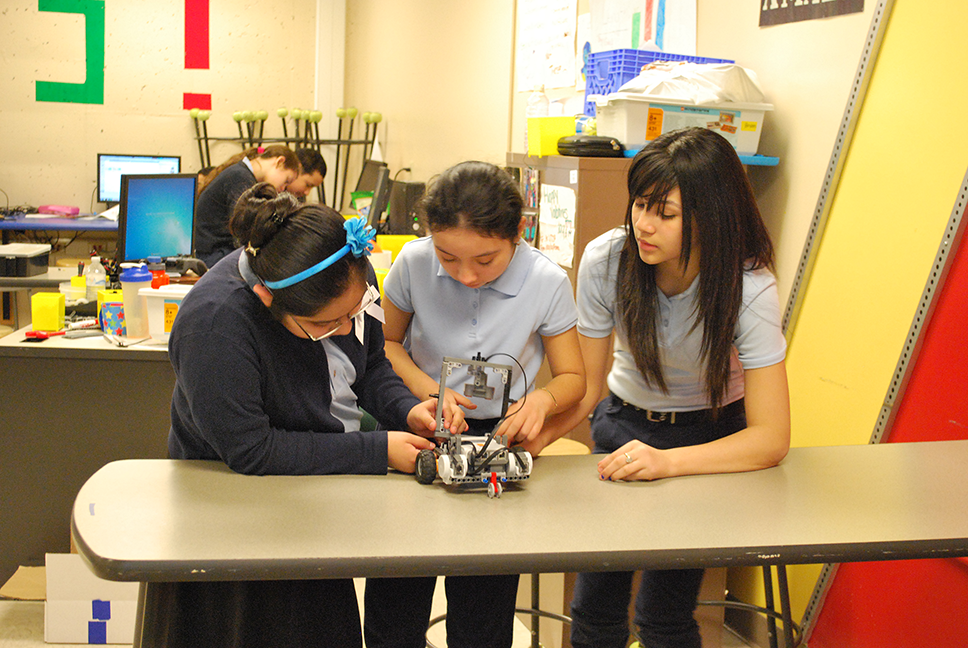(UnidosUS) —
This blog is a collaboration between the National Alliance for Public Charter Schools and UnidosUS for Hispanic Heritage Month and was originally published on the National Alliance for Public Charter School’s blog.
By Brian Ortega, Senior Policy Analyst at UnidosUS, and Fiona Sheridan-McIver, Director of Policy at the National Alliance for Public Charter Schools
Across the country, charter schools serve a growing population of Hispanic and Latino students. In fact, these students make up the largest demographic group of students served by charter schools and the number of Hispanic students in charter schools has grown by more than 200,000 since the beginning of the pandemic.
We connected with four leaders of charter schools in Minnesota, Illinois, New York and California that are Affiliates of UnidosUS — the largest Latino civil right organization in the U.S. — to learn more about how their schools center Hispanic families and honor Hispanic Heritage Month all year long.
Here are a few ways that these charter schools are providing Hispanic students space to thrive:

Fostering a sense of belonging for Hispanic students and families.
For leaders at UnidosUS Affiliate charter schools, fostering a sense of belonging for students and families is a top priority. One way these schools achieve this is by intentionally recruiting staff that identify as Hispanic or Latino so that students and families can see themselves reflected in the school community.
- El Sol Science and Arts Academy in Santa Ana, CA offers language immersion and families have full language access to all staff in a bilingual environment. They also host festivities that are culturally relevant such as festivals, concerts and art events.
- Acero Schools in Chicago fosters a strong sense of community by prioritizing bilingual communication, offering flexible meeting times, and creating opportunities for parent involvement. Over time, families become more engaged, becoming school volunteers, attending board meetings and joining other programs.
A sense of belonging helps parents find community within their schools and among other families.
Curriculum and school activities that reflect Hispanic identities.
Charter schools that serve a sizable number of Hispanic students also often offer curriculum and programs that reflect the cultural and linguistic diversity of Hispanic communities.
Keep up with the latest from UnidosUS
Sign up for the weekly UnidosUS Action Network newsletter delivered every Thursday.
- Amber Charter Schools in New York embed culturally relevant content by incorporating Hispanic and Latino history and contributions across subjects such as literature and history, connecting Hispanic students with their own heritage while also broadening the cultural awareness of all students. Amber also offers Spanish classes from kindergarten through 8th grade to ensure that students are not only learning a second language but also connecting with their cultural roots.
- Academias La Paz in Minneapolis implemented Guided Language Acquisition Design (GLAD) training to address the needs of multilingual learners and as a result, teachers are implementing culturally responsive teaching methods that celebrate student’s linguistic backgrounds by leveraging and celebrating students’ home language. School Superintendent Norma Garces shared, “One of our core values is identity, where we support our students and their families in recognizing and embracing their own unique histories, cultures and languages. We do not honor our students’ identity only during National months, rather it is lived daily in our curriculum and school culture.”
Intentional family engagement.
Students thrive when their families are meaningfully connected to the school community. Intentional family engagement goes beyond participation in school events: it fosters a sense of belonging and partnership. Schools are actively creating opportunities for families and caregivers to not only celebrate cultural events, such as those honoring Hispanic heritage, but also to contribute to school governance and decision-making processes. By empowering families to engage in meaningful ways, schools create inclusive environments that support students’ academic and personal growth.
- Acero Schools host a Bilingual Advocacy Committee for parents. They also involve parents and caregivers in the planning of cultural events throughout the year including Hispanic Heritage Month, Dia de los Muertos, Dia del Niño and Posadas.
- Amber Charter Schools, meanwhile, is launching a series of focus groups with caregivers and students to gather input on their experiences, why they chose Amber, and how the schools can continue to serve them better.
Wraparound services that support student and family well-being.
Many charter schools recognize that student success is closely tied to the well-being of the entire family. To address this, they offer wraparound services that extend beyond academic support to meet the holistic needs of students and their families. By providing these comprehensive supports, schools create a stable and nurturing environment where students are better equipped to learn, and families feel empowered.
- El Sol makes it easy for families to access essential services by offering a food pantry and on-site federal programs like legal aid, health care and social welfare.
- Acero Schools partners with a diverse range of community organizations across the city to address the unique needs of families and enhance their well-being. These partnerships — spanning organizations such as libraries, park districts, police departments, health organizations, neighborhood stores and other nonprofits—enable schools to offer direct support and resources to families.

Continued Learning Opportunities.
In addition to wraparound services to meet basic needs, many charter schools also provide continued learning opportunities for both students and families. UnidosUS- affiliate schools offer UnidosUS programs designed to meet the needs of Hispanic families to grow and learn. These programs include:
- Padres Comprometidos: A parent leadership program that equips families with the knowledge and skills to advocate for their children’s education.
- Civics for All: A program designed to foster civic engagement among families and empower them to advocate for positive change in their school and community.
- Escalera: A program designed to support underserved youth in their academic journey from junior high to college.
- Pioneras en STEM: A program designed to empower Latinas to pursue and succeed in STEM.
- Digital Skills 4 Life (DS4L): a tailored digital literacy program covering hardware, software, internet usage and effective professional communication.
Participation in these programs has helped many parents transform their lives. One inspiring mother, Yei from Acero Schools, expressed gratitude for Padres Comprometidos, “Being part of the groups has helped me grow not only as a person but also in my career. I feel that the program was an eye-opening experience. I am very thankful for the program because I was able to become more involved with my son’s school … and most importantly, I learned that Latinos do have a voice and that we matter!” Her journey exemplifies the power of education and community support in helping families overcome challenges and achieve personal growth.
Hispanic Heritage Month is just one month of the year, but for the charter schools and UnidosUS Affiliates that serve Hispanic students around the country, Hispanic heritage is a part of daily life, and this celebration extends beyond just one month. From incorporating bilingual education and culturally relevant teaching practices to fostering inclusive environments where Hispanic students and their families feel seen and valued, these schools honor and celebrate Hispanic heritage all year round. By embracing and reflecting the diverse backgrounds of their students, they ensure that cultural identity is recognized as a key part of the educational experience.
—
Read More News from UnidosUS
